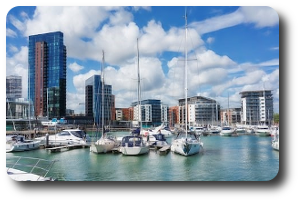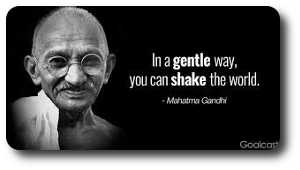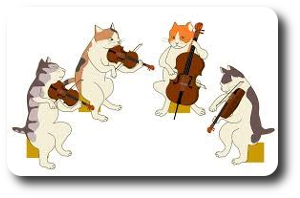DEVELOPMENT AND INNOVATIONS IN PRACTICE.
SHARING, INSPIRING, CREATING.
28th JUNE 2019, NOVOTEL, SOUTHAMPTON.
 There were many inspiring, shared moments during this conference. Hearing family stories of oppression and resistance during Nazi Germany and in the years after from Peter Jakob in his keynote address; listening to teacher Nicky Gilbert talk so movingly about her work to bring NVR into the classroom and how it has changed her experience as a teacher and improved the learning environment for all the children in her class. Hearing more about the history and development of NVR in the UK from the people who were involved at the beginning like Peter Jakob, Liz Day and Elizabeth Heismann demonstrated what can be achieved from sparks of creativity when we follow our hearts as well as our minds..
There were many inspiring, shared moments during this conference. Hearing family stories of oppression and resistance during Nazi Germany and in the years after from Peter Jakob in his keynote address; listening to teacher Nicky Gilbert talk so movingly about her work to bring NVR into the classroom and how it has changed her experience as a teacher and improved the learning environment for all the children in her class. Hearing more about the history and development of NVR in the UK from the people who were involved at the beginning like Peter Jakob, Liz Day and Elizabeth Heismann demonstrated what can be achieved from sparks of creativity when we follow our hearts as well as our minds..
As Peter said, ‘When I first read the article by Haim Omer, I didn’t sleep all night!’. That excitement remains alive in the NVR family and is what gives NVR practitioners their drive to innovate and create new practices and developments and so continue the evolution of the approach.
This conference demonstrated that NVR in the UK context has life and vitality and creativity. It is not a dry, dusty theory, manualized and devoid of the self of the practitioner; it is growing in the UK because it speaks to deeply held values within us to promote peace, build alliances, and connect us all in our shared humanity. This was beautifully illustrated by the presence of so many parents who have struggled with their children and found in NVR something which has allowed them to reconnect with themselves and their children. They have formed communities of support, and some have gone on to be parent facilitators of NVR groups. They stood together in solidarity as part of a keynote speech with their pink T-shirts proclaiming powerfully: “Trauma to Triumph”.
children and found in NVR something which has allowed them to reconnect with themselves and their children. They have formed communities of support, and some have gone on to be parent facilitators of NVR groups. They stood together in solidarity as part of a keynote speech with their pink T-shirts proclaiming powerfully: “Trauma to Triumph”.
I attended a workshop presented by this group of parents called ‘Parenting in the Digital Age’ because I felt that these parents may know best of all about applications of NVR in an area which gives most parents concern and in which we older people, as ‘digital immigrants’ are continually on the back foot. This was a great presentation and gave practical ideas for how to negotiate and communicate with children in this (often no -go) area. From a workshop presented by parents to a workshop presented by Roz McCormack on NVR in organizations. Such a great, lively and thoughtful discussion of presence and the use/misuse of personal power in the workplace. A reminder of how to align ourselves with NVR values, to be self-aware of how we position ourselves with others and the choices we make to accept or decline invitations which may be harmful to us and them.
I am always proud when my own work colleagues say to me that they feel I embody NVR in my demeanour and attitudes and behaviour. That, I think, inspires others to be  curious about ‘what this NVR’ is all about. In my own work context, I am involved in working with parents who have children diagnosed with eating disorders. I was therefore very keen to attend a workshop by Julie Hamisi and Helen McEleny on NVR as an intervention for eating disorders and trauma. I found this workshop really spoke from the heart. The presenters embodied NVR in their calm, gentle but focussed presenting styles. Their care for the parents they work with was obvious, and I really felt how it would be to participate in a group that they facilitate. They emphasize the self-care of the parents as fundamental to the work and think about different learning styles, using discussion, drawings, role plays, metaphors and videos to enhance the group experience for all parents.
curious about ‘what this NVR’ is all about. In my own work context, I am involved in working with parents who have children diagnosed with eating disorders. I was therefore very keen to attend a workshop by Julie Hamisi and Helen McEleny on NVR as an intervention for eating disorders and trauma. I found this workshop really spoke from the heart. The presenters embodied NVR in their calm, gentle but focussed presenting styles. Their care for the parents they work with was obvious, and I really felt how it would be to participate in a group that they facilitate. They emphasize the self-care of the parents as fundamental to the work and think about different learning styles, using discussion, drawings, role plays, metaphors and videos to enhance the group experience for all parents.
Like them, I work in the NHS and so there is an outcome focus, but I was so touched by Julie telling a story of a parent who had been so traumatized by her violent child that she had lost all joy in life; this was epitomized by her no longer playing her violin or reading novels. This mother was doing both by the end of their work together, and the child made comments about this. I felt this encapsulated what NVR is.
Trauma is felt in the physical body at a cellular level. This parent couldn’t play the violin because her body trembled and was rigid. She became released from this place of tension by the NVR work and the care she received from the safe others around her. A beautiful outcome, but not one of the NHS measures will capture! For me, NVR is about the process of healing rather than ‘therapy’.
Humanizing our work together felt like the theme for me at the conference. Sue  moving ‘NVR-Song of Connection’, which she sang unaccompanied on stage, was a beautiful moment among many beautiful moments. I love the use of songs, poetry, art, and stories from the history of the founders of the NVR movement; I truly hope that this creativity grows and we do not allow the common cultural working practices to subsume NVR in a straightjacket of manualisation.
moving ‘NVR-Song of Connection’, which she sang unaccompanied on stage, was a beautiful moment among many beautiful moments. I love the use of songs, poetry, art, and stories from the history of the founders of the NVR movement; I truly hope that this creativity grows and we do not allow the common cultural working practices to subsume NVR in a straightjacket of manualisation.
I think that our connections with the wider NVR community in Europe and beyond will be so helpful in this. It was great to see Michaela Fried and Martin Fellacher from Austria at the conference along with colleagues from Ireland. Peter, Michaela, and Martin are founders of ‘Bridges for Hope and Peace’, an organization which takes NVR into war-torn countries, and Michaela’s work in Gaza is truly inspirational. She is someone who inspires me with her courage and humility.
This was a wonderful day, a day to meet new friends and to renew old acquaintances as well as reinforcing existing connections. The community is growing, NVR is evolving and we share and learn from each other. I think 2 days may be needed next time! To be continued at the International NVR Conference in Linz, Austria in 2020….
Jill Lubienski
Systemic Psychotherapist & Social Worker

